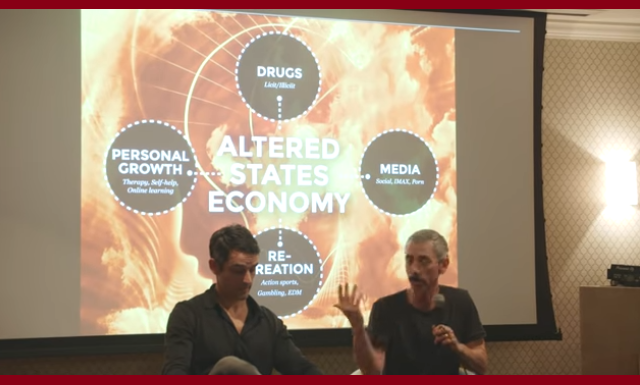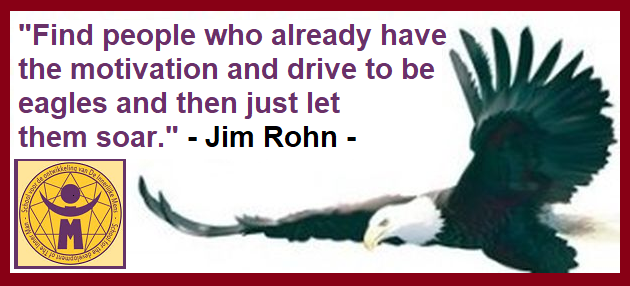Dan Schawbel: "I spoke to both Steven Kotler and Jamie Wheal, co-authors of the national bestseller 'Stealing Fire: How Silicon Valley, the Navy SEALs, and Maverick Scientists Are Revolutionizing the Way We Live and Work', about why they focused on performance enhancement for their book, their four accelerating forces, what they learned from Navy SEALS and Nike about performance, our human limitations and their best advice.
Kotler is also the co-founder and Director of Research for the Flow Genome Project. His previous books include 'Tomorrowland', 'Bold', 'The Rise of Superman', 'Abundance', 'A Small Furry Prayer', 'West of Jesus', and 'The Angle Quickest for Flight'. Wheal has advised everyone from the U.S. Naval War College and Special Operations Command, the athletes of Red Bull, and the owners of NFL, NBA, MLB and Premier League teams, to the executives of Google, Deloitte Cisco and Young Presidents' Organization.
In this groundbreaking book, New York Times-bestselling author Steven Kotler draws on cutting edge research and first-hand reporting as he explores what makes super performers tick and what we can learn from them. Why are business moguls going to 'Burning Man'? Why are c-suite level executives going on more meditation retreats now than in the 1970s? How is MDMA being used to treat trauma patients? Altered states, it turns out, can sharper our decision making capabilities, unleash creativity, fuel creative collaboration, and accelerate our ability to solve problems. Building a bridge between the extreme and the mainstream, 'Stealing Fire' explains how Navy SEALS, Googlers, and Silicon Valley billionaires are using altered states (most are non-drug induced) to radically accelerate performance and fuel happiness. At its core, this is a book about profound possibility; about what is actually possible for our species; about where-if anywhere-our limits lie."

Dan Schawbel: Why did you decide to investigate the topic of performance enhancement for this book after your last one?
Steven Kotler: My last book was 'Tomorrowland' — which was a collection of articles written over the past 25 years about the transformation of science fiction into science fact. In it, there are a number of articles where some of the foundational research was done. For example, the collection includes an article for Discover called Extreme States. It was one of the very first articles on neurotheology anyone had published, and it was the early foundation for work we describe in the Neurobiology chapter in 'Stealing Fire'.
Combined with research being conducted at the 'Flow Genome Project' - when we were getting a clear picture that people were experimenting with a wide range of non-ordinary states of consciousness to enhance performance.
Putting the two together gave me the real sense that hacking consciousness was the next frontier I wanted to investigate - call it the next science fiction technology suddenly becoming science fact.
Jamie Wheal: Everywhere we went speaking and presenting to leaders and their high performing organizations at events and conferences, it seemed like thousands of people were all having the same conversation at the intersection of state-changing tech and performance and innovation. From TED to Davos to Burning Man to Necker Island to the UN, these same influencers were making the rounds on a global circuit and using shared ecstatic experience to forge connections, build companies and launch social movements.
Schawbel: What are the four accelerating forces and how do we tweak them to our advantage?
Kotler: Right now we’re in the middle of a $4 trillion dollar revolution in people hacking consciousness to accelerate performance The four forces - psychology, neurobiology, technology and pharmacology - are why this revolution is happening now. These four domains surround the exploration of non-ordinary states, so we’re gaining insights at an incredible pace, we’re being able to tune these states with increasing precision, and we’re able to share these experiences at scale. It’s a big shift. Take just one force: technology. We now have EEG technology that can help people tune their brainwaves with such precision that we’re able to achieve in weeks and months states of consciousness that used to take trained meditators decades to master.
Wheal: The four forces - psychology, neurobiology, technology and pharmacology - are all intersecting now to make access to high performing non-ordinary states safer, more accessible and more scalable than ever before. By expanding our sense of possible selves (psych), mapping out the mechanisms of a wide range of consciousness (bio), tuning our neurochemistry to reliably prompt specific states (pharma) and leveraging rich media and tools (tech) to prime ecstasis on demand, we are gaining more frequent and reliable access to domains that used to be rare and mythologized.
Schawbel: After studying Navy SEALs and Nike, what have you learned that can empower people to get more done in less time?
Kotler: Both of these organizations actively pursue the peak state of consciousness known as flow. As far as empowering people to get more done, McKinsey did a 10 year study and found that top executive in flow report being 500% more productive the normal. Moreover, what we’ve discovered at FGP is that it’s remarkably easy to train. In a 6 week joint learning project we conducted with Google, after six weeks of training, their engineers reports a 35-80% increase in flow.
Wheal: Bottom line: respect your time energy and attention like you're a professional athlete. ID your top three most important tasks for tomorrow as the last thing you do each day. Define and Defend your first 90 minutes of each day to exclusively work on your most important task. Stay off phone and out of inbox for duration. Repeat. Where does innovation come from in these two examples? State-change on demand. For the teams, the ability to become extremely situationally aware and attuned to teammates movements and decisions is the key to their extreme coordination and execution. (plus tons of practice). For Nike, it was state change prompted by tech mediation - heart rate variability and respiration monitors to boost team cohesion. Same outcome (heightened group coherence and output) different mechanisms.
Schawbel: Do you think there are any limitations on human capabilities due to the 24-hour day and the brain? Explain.
Kotler: This depends if you’re including periods for rest and recharge. The brain has a fixed energy budget so once that’s expended, recharge is fundamental. So sleep is a non-negotiable for high performance. But if you’re asking the time management question, our feeling is you have to go fast. Consider flow. Patagonia has a corporate policy called 'Let Me People Go Surfing'. The company sits right on the pacific, so any employee who wants to can go surfing at any time. They can leave meetings to go surf. Why? Surfing is a huge flow trigger. So employee might take a 2 hour surf break but they come back 500% more productive. So, right now, the biggest impediment to time management is not taking full advantage of the performance boost altered states (properly deployed) can provide.
Wheal: If you mean: "we only have so many hours in a day and so much grey matter" then I'd say we barely spend an hour a day in fully engaged awareness, and spending even 3-5 hours in that state, balanced and supported by deliberate training and recovery, you can boost output considerably. If you're saying: "we're overstimulated brains and screens these days" then I'd say changing states of consciousness provided vital reset/recalibration/defibrillation that lets our nervous systems reset in a vital and healthy way (as supported by multiple studies on trauma, etcetera.)
Schawbel: What are your top three pieces of career advice?
Kotler:
1. Put passion and flow at the very center of your career. This is what all top performers do. It’s exactly how they become top performers.
2. You can never have too many arrows in your quiver - meaning surround your craft. Learn all sides of it. True mastery means being able to be creative in 360 degrees. You need a very deep and very wide skill set to do that.
3. Read books. Books are where they keep the secrets.
Wheal:
1. Build a pyramid don't climb a ladder. Start our a curious generalist and follow passions and great teachers.
2. Secure certificates/public acknowledgment and portfolios of what you've learned to make it easier for others to recognize (and reward) your progress.
3. Forge an ironclad physical, emotional and relational maintenance and renewal practice so that as you encounter increased career challenges, you can remain balanced and fueled along the way.

"Vind mensen, die in zichzelf zowel de motivatie als de aangeboren drijfveer hebben om aan hun Innerlijke Zelf te werken, en we zullen hen gidsen."
- DIMschool vzw, de énige gespecialiseerd in Zelfkennis, zijnde: het kennen van het Zelf -
----------------------------------------------------------------------------------------------------------------------------------------------------
Voel je je geroepen om Spiritualia te sponsoren?
Klik hier en, alvast bedankt!
Overschrijven kan ook via: IBAN: BE22 7795 9845 2547 - BIC: GKCCBEBB
- Ook kan je in onze webshop iets aankopen, waaronder:
Archetypen vragenlijst
Boeken (sterk afgeprijst)
Kristallen schedels
Pendels
Purperen plaatjes
Wierook & Benodigdheden
Voor de 'Zoekers naar hun Innerlijke Waarheid' is er Eclecticus!
En, dan heb je nog de vaste teksten...
DIMschool biedt 10 interessante privé-sessies aan waaruit jij kan kiezen!
Dossier Zelfkennis: Over de Handleiding Pendelen van A tot Z
'Eclecticus': een korte introductie…
Meteorieten zijn hoogstwaarschijnlijk zo oud als onze planeet: eentje kopen?
Prachtige geode amethist schedel van 4 kg 340 gram zoekt een warme thuis.
Wat is jouw Archetype ? En, ken je ook die van jouw partner?